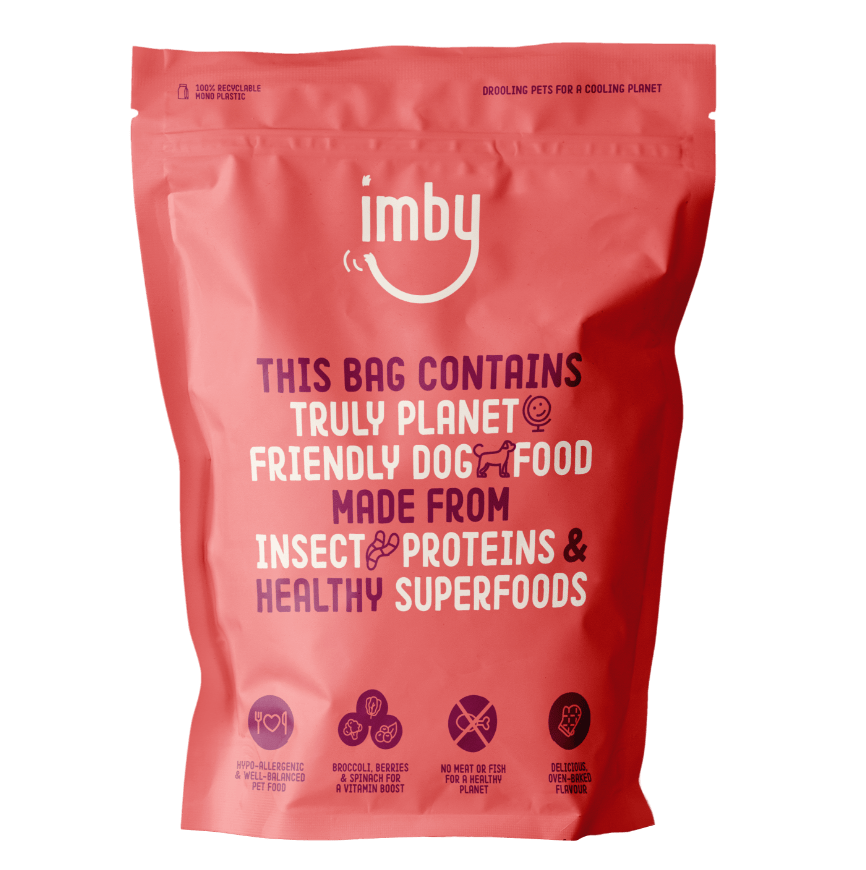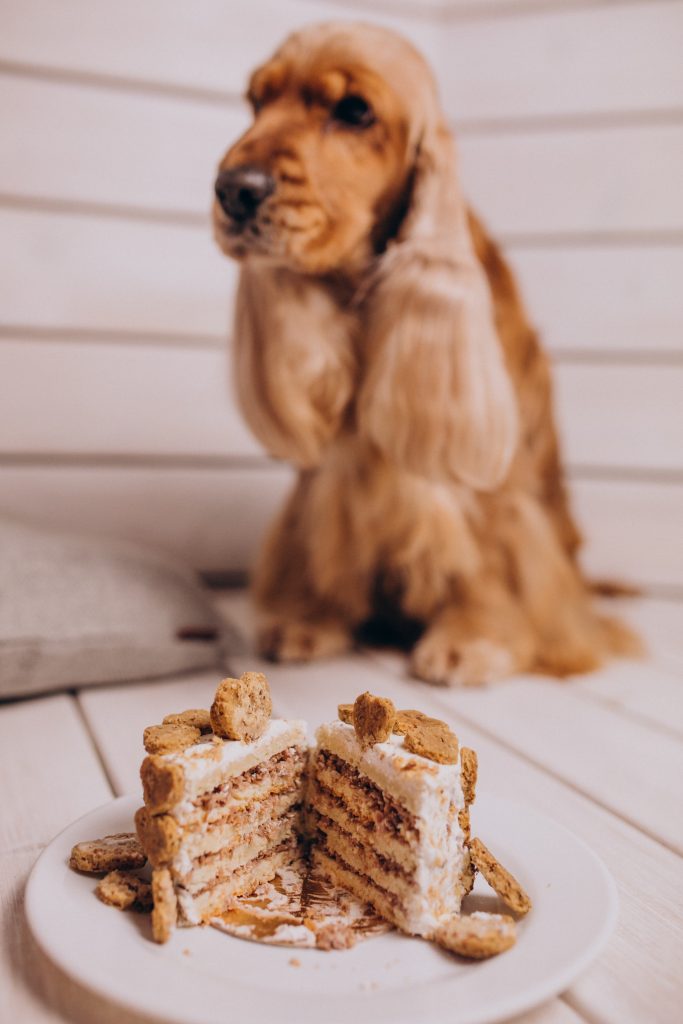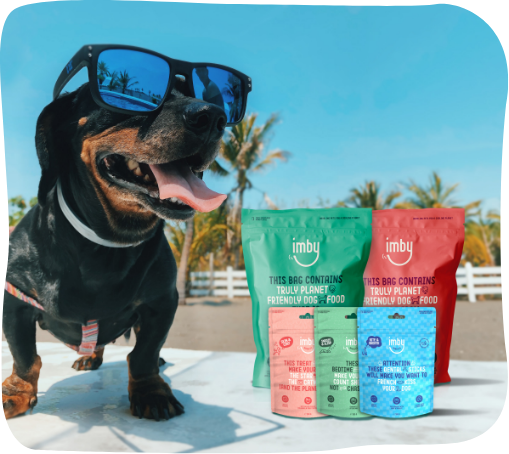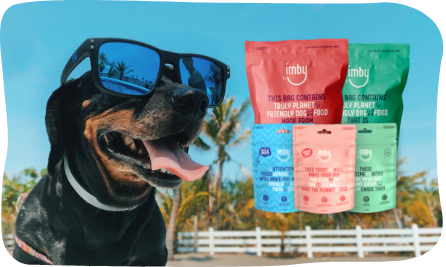Use code CHANGE20 for 20% off your first dog food order!
Use code CHANGE20 for 20% off your first dog food order!



Peanut butter can be a delicious and nutritious treat for your dog. It’s packed with healthy fats and protein, making it a great addition to their diet in moderation. However, not all peanut butter is dog-friendly, so it’s important to check the ingredients before sharing it with your pup.
One major concern is xylitol, an artificial sweetener that is highly toxic to dogs. Even small amounts can cause a dangerous drop in blood sugar, leading to serious health issues. Always read the label carefully and choose a peanut butter that is free from xylitol, excessive salt, and added sugars.
So, can dogs eat peanut butter? Yes—but only if it’s a natural, xylitol-free option and given in moderation. Keep it simple and safe, and your pup will love this tasty treat!
Peanut butter is a tasty treat for dogs, but some added ingredients can pose health risks. Here’s what to watch out for…
While dogs need some salt in their diet, too much can lead to high blood pressure and kidney issues. Opt for peanut butter with little to no added salt.
Some brands add sugar, which can contribute to obesity, diabetes, and dental problems. Stick to natural, unsweetened options.
Many commercial peanut butters contain additives that offer no nutritional benefit and may cause allergies or digestive upset. Choosing a natural peanut butter free from unnecessary ingredients is the safest option for your pup.
Peanut butter is a tasty treat for many dogs, but it can be dangerous if it contains xylitol, an artificial sweetener. While safe for humans, xylitol is highly toxic to dogs and can lead to severe health complications.
Dogs process xylitol very differently from humans. Even a small amount can cause a rapid release of insulin, leading to a sudden drop in blood sugar (hypoglycaemia). Symptoms of xylitol poisoning can appear within minutes and include: Vomiting, weakness or difficulty walking, tremors or seizures and loss of coordination.
Xylitol poisoning can lead to serious liver damage, causing jaundice, internal bleeding, and, if left untreated, can be fatal. That’s why checking ingredient labels is essential when buying peanut butter for your pup.
Xylitol poisoning is a serious emergency. Always check ingredient labels carefully to ensure your peanut butter is xylitol-free. If you think your dog has ingested xylitol, contact your vet immediately—quick action can save their life.

Peanut butter can be a tasty yet nutritious treat for dogs, providing key nutrients that help strengthen their immune system. It’s a good source of vitamin E, a powerful antioxidant that helps protect cells from damage and supports overall well-being.
A robust immune system helps keep dogs in top condition, making them more resilient to illnesses and infections.
Peanut butter is packed with healthy fats, including omega-3 fatty acids, which are known for their brain-boosting properties. These nutrients play an essential role in maintaining cognitive health and supporting a well-functioning nervous system. This is particularly beneficial for older dogs, helping them stay alert and sharp as they age.
While peanut butter can be a great addition to your dog’s diet, moderation is key. Too much can lead to weight gain and other health concerns. Always opt for xylitol-free, unsweetened peanut butter to ensure your dog’s snack is both safe and nutritious.
Peanut butter can be a delicious and nutritious treat for dogs, but it’s important to offer it responsibly to keep your four-legged friend happy and healthy.
When it comes to peanut butter, moderation is key. While it contains beneficial nutrients, it’s also high in calories and fats, which can lead to weight gain if given in excess. As a general rule, one to two teaspoons is plenty for most dogs. Make sure treats, including peanut butter, fit within your dog’s overall diet and don’t exceed the recommended daily intake for their breed and size.
If your dog is prone to weight gain, keep an eye on their total calorie intake. Opt for natural peanut butter with no added sugars, and try to limit other high-calorie treats on days when you offer peanut butter. Balancing treats with regular meals helps maintain a healthy weight and overall well-being.
Every dog is different, so the right amount of peanut butter will depend on factors like age, size, and activity level. Keep an eye on your dog’s weight and condition, and if you notice any signs of weight gain, consider cutting back on treats—including peanut butter.
While peanut allergies in dogs are less common than in humans, they can still occur. Symptoms vary in severity, so it’s important to recognise the signs and seek immediate veterinary care if your dog has a reaction.
One of the most serious symptoms of a peanut allergy is trouble breathing. If your dog is panting excessively, wheezing, snoring, or struggling to breathe, this could indicate a severe reaction that requires urgent medical attention.
Persistent coughing after eating peanuts could be a sign of an allergic reaction or another respiratory issue. If your dog develops a cough, it’s best to consult your vet.
Allergic reactions in dogs often cause itchy skin. If your dog is scratching, licking, or biting excessively—especially after eating peanuts—it may be a sign of an allergy.
Swelling, particularly around the face, muzzle, lips, or eyes, is another key symptom. If you notice swelling, seek immediate veterinary care.
Vomiting can occur as part of an allergic reaction. If your dog vomits repeatedly after eating peanuts, it’s important to speak to your vet to rule out an allergy.
If you suspect your dog is allergic to peanuts, avoid giving them peanut products and consult your vet. They can confirm the allergy through testing and advise on alternative treats to keep your pup safe and happy.
Peanut butter can be a tasty and nutritious treat for dogs, but there are a few key things owners should keep in mind.
Benefits:
Packed with Nutrients: Peanut butter is rich in protein, healthy fats, and vitamin E, all of which support a shiny coat and healthy skin.
Great for Mental Stimulation: Smearing peanut butter inside a toy like a Kong can provide mental enrichment, keeping your dog entertained and preventing boredom.
Helpful for Giving Medication: Many owners use peanut butter to hide pills, making it easier to give medication without a struggle.
Things to Watch Out For:
Avoid Harmful Additives: Some peanut butter brands contain added sugar, salt, or xylitol, a sweetener that is highly toxic to dogs. Always check the label and opt for natural, unsweetened peanut butter.
Watch the Calories: Peanut butter is high in calories, so portion control is important, especially for dogs that are prone to weight gain. Offer it as an occasional treat, not a daily snack.
Potential Allergies: Some dogs can be allergic to peanuts, leading to symptoms like itching, vomiting, or breathing issues. If it’s your dog’s first time trying peanut butter, start with a small amount and monitor for any reactions.
As long as it’s free from harmful additives and given in moderation, peanut butter can be a safe and enjoyable addition to your dog’s diet. If you’re unsure, it’s always best to check with your vet to make sure it’s the right choice for your furry friend.
Yes, dogs can enjoy crunchy peanut butter, but there are a few things to consider to ensure it’s safe for them:
Chewing Preference: Some dogs prefer the texture of crunchy peanut butter over smooth, and it can be a great option for dogs who love to chew. The added pieces can offer a little extra stimulation, which can be particularly enjoyable for dogs with strong chewing habits.
Check the Ingredients: Just like with smooth peanut butter, it’s important to check the ingredients in crunchy peanut butter. Some brands may include sugars, salts, or other additives that are best avoided. Always opt for natural peanut butter without harmful ingredients.
Chew Safety: If your dog tends to gobble down treats quickly, crunchy peanut butter could pose a choking hazard if they don’t chew carefully. It’s a good idea to supervise your dog while they enjoy their treat to ensure they’re eating safely.
Allergies and Intolerances: As with regular peanut butter, make sure your dog isn’t allergic to peanuts. If it’s their first time trying crunchy peanut butter, start with a small amount and keep an eye out for any signs of allergic reactions, such as itching, vomiting, or diarrhoea.
The amount of peanut butter that’s safe for your dog depends on its size, weight, and overall health.
Generally, peanut butter should be considered a treat, so portion sizes should be adjusted accordingly.
For smaller dogs, one to two teaspoons is usually enough, while larger dogs can have slightly more.
However, since peanut butter is high in calories, it’s important to monitor how much you’re giving, as excessive calorie intake can lead to weight gain.
Make sure to take into account your dog’s total daily food intake, including treats, and balance it with a healthy diet and regular exercise.
Peanut butter is a favourite treat for many dogs, and it’s easy to see why. The delicious taste and satisfying texture are a winning combination that appeals to dogs’ taste buds. The mix of savoury and fatty elements makes it irresistible to them.
On top of that, peanut butter is packed with healthy nutrients like protein and fats, which can help maintain a shiny coat and healthy skin. Many dog owners also use peanut butter as a fun stuffing for toys, making it not only a tasty treat but also a stimulating activity. Just be sure to offer it in moderation, check the ingredients to ensure it’s safe, and keep an eye on your dog’s overall health.
One of the most fun and engaging ways to treat your dog to peanut butter is by using puzzle feeders or toys. These specially designed toys allow you to hide peanut butter inside, encouraging your dog to work for their treat. This not only keeps them busy but also provides both physical and mental stimulation, helping to prevent boredom.
Lick mats are another fantastic way to serve peanut butter. Simply spread a thin layer of peanut butter across the mat and let your dog savour it at their own pace. Not only is this a fun treat, but it can also serve as a great distraction during grooming sessions or when you have visitors. This combination of discovery and tasting taps into your dog’s natural instincts, all while offering a tasty reward.
Hypoallergenic treats are ideal for dogs with sensitivities to certain ingredients. Opting for safe, natural ingredients like plant-based components or insect protein is a great way to keep things gentle on your dog’s tummy.
Here are a few healthy snacks that tend to be well tolerated:
Skin & Coat Snack
Imby’s Skin & Coat Snack is made with insect protein and a selection of herbs that help support healthy skin and a shiny coat by boosting your dog’s circulation.
Nighty Night Snack
Imby’s Nighty Night Snack is a calming veggie-based treat, infused with turmeric and chamomile. It’s perfect for winding down before bed, while also giving your dog a bit of joint support.
Dental Stick Snack
Imby’s Vegetable Dental Stick, with mint and parsley, is an easy way to freshen your dog’s breath and support their dental hygiene in one go.





4.8 out of 5 stars
based on 155 reviews



"*" indicates required fields